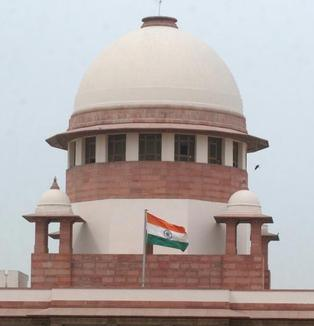Info members from judicial background not correct: SC
Votaries of transparency law told the Supreme Court that its direction for appointing people from judicial background as members of the Central and state information commissions was "legally not correct" and would lead to "frustrating"

Votaries of transparency law told the Supreme Court that its direction for appointing people from judicial background as members of the Central and state information commissions was “legally not correct” and would lead to “frustrating” the whole objective of the RTI Act. Former Information Commissioner Shailesh Gandhi and transparency activist Aruna Roy disagreed with the apex court that persons from judicial background or lawyers with experience of 20 years would better serve as information commissioners as the job requires balancing act.
“That balance does not mean that there has to be lawyers and judges in the panel. The only thing required is transparent and rational method of selection of information commissioners”, their counsel Prashant Bhushan submitted before a bench of justices AK Patnaik and Swatanter Kumar. He further submitted that there was no surety that lawyers and judges would always perform a balancing act in answering queries as “there are lawyers who are quacks and there are judges who are quacks who do not know law”.
The bench said it was emphasising on the balancing aspect because there have been several orders in the recent past which were “chaotic”. “Some of these orders are chaotic. There is no balance and they are absolutely chaotic”, the bench said. Bhushan said he along with Gandhi and Roy were actively involved in the drafting of the Right to Information (RTI) Act and they are of the view that implementing this particular direction in the September 13 judgement would “frustrate” the purpose of the law.
He said under the RTI Act there can only be 10 bench and if each bench would comprise of two members it will become half and badly affect the functioning of the Central Information Commission in view of the backlog. “This will frustrate the whole objective of the Act, “he said, adding that “this part of judgement (appointment of lawyers or persons with judicial background as members of information panel) is legally not correct”, he said.
An NGO, Commonwealth of Human Rights Initiative, through senior advocate M S Ganesh, submitted that information panels cannot be treated as quasi-judicial forums requiring the members to be from the judicial background. He said the information panels are like administrative panels and people from all backgrounds can be considered. The Court was hearing the Centre’s plea seeking review of its judgement ruling that people from judicial background should also be appointed as members of Central and state information commissions and only sitting or retired chief justices of high courts or a Supreme Court judge can head them.
The Centre had yesterday contested the view that only loyal bureaucrats are appointed. Attorney General G E Vahanwati had said no such criteria is followed for these appointments and referred the case of the Comptroller & Auditor General of India Vinod Rai, who was earlier a bureaucrat. He further submitted that the apex court verdict was wrong as it cannot rewrite a law which is a function of legislative body.
In its September 13 verdict, the apex court had also directed the Centre to amend the RTI Act. “Chief Information Commissioner at the Centre or state level shall only be a person who is or has been a chief justice of the high court or a judge of the Supreme Court of India”, the court had said. The bench, however, had refused to quash the sections but asked the government to modify it so that people from judicial background are also preferred for the post.
Currently, none of the eight members of the Central Information Commission (CIC), including the Chief Information Commissioner, are from judicial background. The CIC comprises one Chief Information Commissioner and 10 information commissioners.

